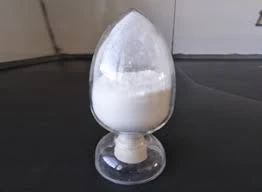The Power of PQQ for Memory Enhancement
In recent years, the quest for memory enhancement has gained momentum as our society continuously evolves and demands more from our cognitive abilities. Among the numerous substances being studied for their potential neuroprotective benefits, pyrroloquinoline quinone (PQQ) has emerged as a promising candidate. PQQ is a small quinone compound that has garnered attention for its remarkable properties, including its role in energy production, antioxidant functions, and, notably, its potential impact on memory and cognitive performance.
Understanding PQQ
PQQ is a redox cofactor involved in several biological processes, specifically linked to mitochondrial function. Mitochondria, known as the powerhouse of the cell, play a crucial role in energy production. PQQ is believed to support mitochondrial biogenesis, the process by which new mitochondria are formed within cells. This is vital not just for energy metabolism but also for neuronal health. Increased mitochondrial function is purported to enhance energy levels and support cognitive processes, potentially improving memory.
The Role of PQQ in Neuroprotection
One of the most compelling aspects of PQQ is its strong antioxidant properties. Oxidative stress is a significant factor in cognitive decline and memory impairment, as it leads to neuronal damage. PQQ acts as an effective scavenger of free radicals, helping to neutralize harmful compounds that cause oxidative damage. By protecting neurons from oxidative stress, PQQ may help maintain cognitive function and improve memory.
Research is increasingly exploring the neuroprotective effects of PQQ. Animal studies have indicated that PQQ supplementation can improve memory performance and cognitive function. For instance, a study published in the journal Neuroscience Letters found that rats supplemented with PQQ exhibited improved spatial learning abilities when compared to control groups. While the results from animal studies are promising, further human trials are necessary to fully understand the potential benefits of PQQ in memory enhancement in humans.
pqq for memory

Potential Mechanisms Behind Memory Improvement
Though the exact mechanisms by which PQQ enhances memory are still under investigation, several hypotheses have been proposed. One potential explanation is related to PQQ’s ability to promote synaptic plasticity. Synaptic plasticity refers to the ability of synapses (the connections between neurons) to strengthen or weaken over time, which is essential for learning and memory formation. PQQ may enhance this process, promoting better communication between neurons and facilitating memory retention.
Moreover, PQQ has been shown to modulate neurotrophic factors, such as Brain-Derived Neurotrophic Factor (BDNF). BDNF is crucial for the growth, maintenance, and survival of neurons. Increased levels of BDNF are associated with improved memory performance and cognitive function. Therefore, PQQ’s role in upregulating BDNF could be a significant factor in its memory-boosting effects.
Considerations and Conclusion
Despite the promising findings surrounding PQQ and memory enhancement, it is essential to approach supplementation with caution. While PQQ is considered safe and well-tolerated in low doses, further research is needed to establish optimal dosages and long-term effects. Consulting healthcare professionals before starting any new supplement, including PQQ, is wise, especially for individuals with underlying health conditions or those taking other medications.
In conclusion, PQQ shows significant promise as a memory-enhancing agent. With its antioxidant properties, support for mitochondrial function, and potential role in promoting synaptic plasticity and neurotrophic factors, PQQ could play a vital role in combating memory decline and enhancing cognitive performance. As research continues to unfold, PQQ may emerge as a valuable tool in our arsenal for memory enhancement, paving the way for improved cognitive health in an increasingly demanding world.

